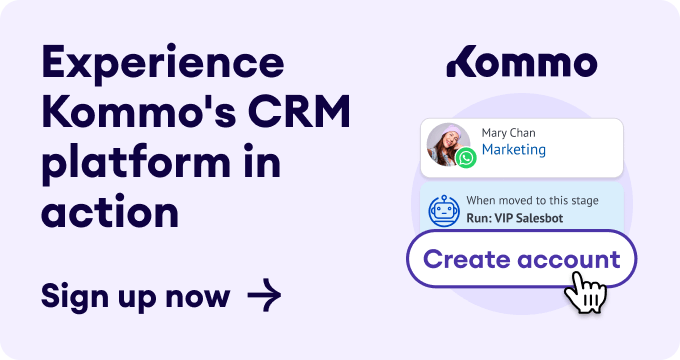The great business icons who have gone down in history have one major thing in common: they’re enormous risk-takers. They don’t give a f*** about coloring inside the lines. They break new ground without permission. Sometimes they fight the system.
In the IDGAF interview series, I chat with business people who aren’t afraid to swim against the current or speak against the status quo. Together, we explore the downfalls, reality and hard truths in business today. In this interview, we’re talking about sales decks — and we’re not holding back.
Today’s interview is with the passionate, driven Director of Sales Development at Aircall, Bryan Elsesser. He’s also a volunteer firefighter, professional opera singer, proud husband, father of two twin boys… and the list goes on. He opens up in an interview with me about why he doesn’t give a f*** about sales decks, and puts his sales recipe out there.
As soon as our conversation begins, Bryan Elsesser asks me how I’m doing, breaks the ice with funny jokes that radiate optimism and positivity. As a child, he decided to raise money for the Boy Scouts by selling candy in his neighborhood. It was then that he knew he had a knack for talking to people. “I didn’t mind knocking on someone’s door. I didn’t find it weird. And I just kept doing it,” he remembers, “it was just something I always knew that I could do.”
Fun fact: Bryan’s first sale was at the age of 11 when he sold candy in the Boy Scouts
We all know that passion is a prerequisite for success, it fuels our desire to improve and achieve our goals — and Bryan was never lacking in passion. He kicked off his career in 2011 when he secured a position in the Yellow Pages advertising, which was also part of AT&T.
One of the secrets of how he does it all: he knows that success depends on your backbone, not your wishbone.
Plus he doesn’t believe in the idea of work-life balance, but in always going “the extra mile.” It’s no surprise that only within a few years he faced a “crazy amount of success” — building a robust process at YEXT and scaling the company’s pipeline from $0 to $22 million in a single year.
Today, in addition to his other responsibilities, Bryan puts his shoulder to the wheel at Aircall, a cloud-based phone system for modern businesses designed for remote teams and international virtual offices, where he runs both the outbound and inbound processes.
For Bryan, successful sales is a combination of art and science. He refers to it as a “perfect world of both,” explaining that “on one hand, you have the art of language, understanding and building relationships with people. And on the other, you have the science behind the actual inputs to create your output.”
“What’s wrong with sales decks?” I ask, recalling his post on LinkedIn that has gone viral. “I mean — after all, presentation is one of the most classical forms of selling.”
Bryan eagerly explains, “everyone should have a presentation and that goes without saying, but here’s where sales decks go wrong: When they become templated, company-wide decks.”
According to Bryan, having several slides about the company’s founding story and its creators are all “time wasters.” Even though it should contain a slide about the company, it shouldn’t be written in terms of its history:
“You have a slide about where the company was founded… ‘It was founded in the middle of San Francisco by four guys who were bored.’ — Who the hell cares? No one gives a crap! It’s the stupidest thing in the world. Honestly, I'm not going to buy your product because you have a history of some guy in a corner that decided he had an idea. That's not going to sell anything to me.”
“You have a slide about where the company was founded… ‘It was founded in the middle of San Francisco by four guys who were bored.’ — Who the hell cares? No one gives a crap!”
But Bryan’s “favorite” slide is client logos. “Here’s the logos [of clients] we’ve signed. If those logos have nothing to do with me, why the hell am I looking at them?” he asks. “It's all smoke and mirrors to begin with, it's not like they signed the entire company and the entire company is a customer.”
According to Bryan, placing a bunch of logos on the screen that are irrelevant to the customer and their industry is “such a backward way of thinking.” And this, he says, is when “decks actually create opportunities for crappy selling.”
“Decks actually create opportunities for crappy selling”
Bryan insists that a sales deck should only be used after the discovery call has been done because only at this point, you start to understand your customer’s business, challenges, current situation, problems and impacts. In other words, after you’ve identified their situation and uncovered the essentials, “a sales deck not only becomes easy and obvious, but it becomes a presentation about the person you're speaking with.”
His strategy is not templated, but personalized based on the information you’ve gathered about the individual you’re talking to. He provides an example of how to ask for the person’s feedback each step of the way:
Sales rep: Hey, when we last spoke, from what I understand, it seems like this is what's going on. Is this accurate? Did I miss anything?
Customer: That’s accurate.
Sales rep: Great! So, what I've identified is that here are some of the challenges that you'd like to see tackled, right? And the challenges are having this impact on the business today. I think the goal of our partnership should be to identify how we can tackle these specific impacts and give you that back. We think we can do that.
“A perfect sales deck,” in Bryan’s view, “is one that speaks specifically to your customer’s needs, which is based upon what has been uncovered about them in your previous conversation. It then ties in — in a really seamless way — your product into what it is that the customer said.”
Furthermore, he advises revisiting the fundamental roots of sales: principles like people buy from people:
“You need to connect to them on a human level, and having a deck about your product and making a call about it is crap. They’re not gonna buy sh*t from you,” he insists. “You need to make the conversation about two people who are meeting to talk about a problem, and how you will be able to solve that problem. Only after that, you’ll have a deck that says, ‘here’s how we could potentially solve your issue at any level, at any scale, any size business,” he says.
“A perfect sales deck is the one that speaks specifically to your customer’s needs, which is based upon what has been uncovered about them in your previous conversation”
He takes it further by mentioning that nowadays, we need to enable sellers to have personalized conversations with their buyers because expectations have changed. Now customers expect:
- This person should know me.
- They should be able to understand my issue.
- It will solve X, Y and Z.
Buyers want solutions to be “served to them on a silver platter” in a way that most sales teams aren’t accustomed to doing or have gotten lazy on doing. And due to the lack of knowledge of what a sales process should look like, “companies build a standardized sales deck and simply reuse the same slides over and over again.” It’s a fatal mistake: “Don’t throw a deck down someone's throat if it has nothing to do with them,” he repeats.
.@BryanElsesser: Don’t throw a deck down someone's throat if it has nothing to do with them. @Kommo
Above all, Bryan suggests that any person who delivers a sales deck should be willing to abandon it in its entirety the second that they feel their prospect is getting frustrated or bored. He shares some key warning signs, which could be either when they’re simply not responding, or just giving you a one-word response. Spoiler alert: if you have to ask, “are you still with me?” then you may be losing your prospect.
Finally, to arrive at a deeper understanding of how to succeed in business, I ask Bryan what it takes to be successful in sales. His answer? “Grit, aggressiveness and a bit of audacity.”
“You have to be able to overcome a challenge either personal or professional, to show evidence of adapting to an environment that's ever-changing, and finally, to respond in a positive way if someone throws a curveball at you.” Anyone who can do that, Bryan says, “will be ok in a startup, and will be ok in sales.”
If you’re a business person and you feel that you’re pushing boundaries in your company or daring to do something against its system, then send us an email at media@team.amocrm.com and make your voice heard.
🚀 Make a personal sale with Kommo
✅ Kommo is a pioneering Messenger Based Sales CRM software that helps businesses achieve more sales and create long-lasting relationships with their customers. It is a tool that enables companies to reach better results and increase their profits.





